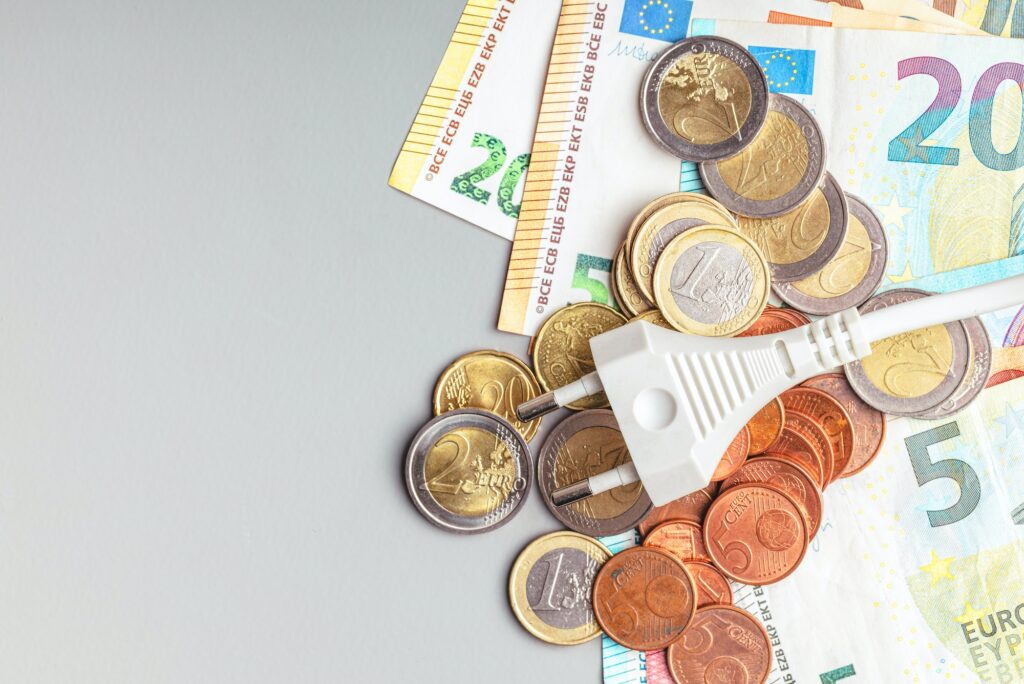The benefits of energy efficiency are many in today’s world. Not only does it reduce energy bills, but it also helps to reduce emissions, promote energy independence, and improve public health. Unfortunately, energy costs keep rising as the demand for energy increases. Thankfully, there are programs and ways to save on energy bills, which could potentially help reduce the total cost of your energy bill. This article will discuss these programs in depth and provide specific tips on how to save on energy bills.
Tips to Save on Energy Bills
1. Utilize Insulation: Proper insulation is one of the best ways to ensure that your home’s energy bills remain low. Insulation helps to keep your home’s temperature consistent, which prevents heat from escaping in the winter and cool air from escaping in the summer. Investing in higher-quality insulation can also help to reduce potential heat loss or absorption from outside sources. Additionally, consider replacing older windows with newer, more energy-efficient options to further reduce heat losses.
2. Replace Your HVAC System: HVAC systems are the largest consumer of energy in a home, so it is important to ensure that your HVAC unit is in good condition and operating as efficiently as possible. Consider upgrading to a newer, more energy-efficient model, or talk to a HVAC technician to find out how you can improve the efficiency of your existing system.
3. Use Energy-Efficient Bulbs: The type of light bulbs you use in your home can make a big difference when it comes to energy efficiency. Compact fluorescent bulbs and LED bulbs are much more energy-efficient than traditional incandescent bulbs, and they can help reduce energy costs by up to 75%. Additionally, they last longer, so they don’t need to be replaced as often.
4. Schedule Routine Maintenance: One of the best ways to ensure that your HVAC system continues to operate efficiently is to schedule regular maintenance. During maintenance, your system will be inspected and cleaned to ensure that it is working properly. Additionally, any repairs that need to be made can be addressed before they become major issues, which will help to keep your energy bills low.
5. Adjust Your Thermostat: Your thermostat plays a major role in the efficiency of your HVAC system. If it is not adjusted correctly, then it can lead to wasted energy. To make sure that your thermostat is operating as efficiently as possible, try to keep the temperature consistent and make sure that you set it to the optimum temperature. Additionally, consider installing a programmable or smart thermostat, which can be pre-set to adjust itself at certain times of the day.
6.Take Advantage of Renewable Energy: Renewable energy is becoming more and more popular as an alternative to traditional energy sources. Depending on where you live, you may be able to take advantage of renewable energy programs that allow you to produce your own energy or purchase energy generated from renewable sources. These programs are typically cheaper than traditional energy programs, so if you have the option, consider taking advantage of them.
Programs
In addition to the tips mentioned above, there are also a variety of programs available to help reduce energy bills. These programs offer incentives, discounts, and other benefits to incentivize energy efficiency.
1. Tax Credits: The federal government offers several tax credits to encourage energy efficiency. These credits can be used to cover the cost of energy-efficient home improvements, such as the installation of solar panels and the purchase of Energy Star appliances. Additionally, many states offer similar tax credits for energy-efficient homes.
2. Utility Programs: Many utility companies offer programs that can help you save on your energy bills. These programs can include incentives, discounts, and other benefits. For example, many utility companies offer energy-efficiency plans that provide discounts on energy use when you reduce your energy consumption or take part in energy-saving activities.
3. Rebates: Another way to save on energy bills is to take advantage of rebates. Many state and local governments offer rebates for energy-efficient home improvements, such as the installation of solar panels and the purchase of Energy Star appliances. Utilities may also offer rebates for energy-efficient products.
Home Upgrades & Improvements
In addition to taking advantage of existing programs, there are also a number of home upgrades and improvements that can result in significant energy savings. These include:
• Installing energy-efficient appliances – Replacing older, inefficient appliances with new Energy Star-rated models can result in significant energy savings.
• Improving insulation – By making sure your home is properly insulated and sealing air leaks, you can keep your home cooler in the summer and warmer in the winter, resulting in less energy used for heating and cooling.
• Installing energy-efficient lighting – Replacing older lighting fixtures with LED bulbs or switching to dimmable lights can reduce electricity used for lighting.
• Using programmable thermostats – A programmable thermostat can help you to reduce your energy usage by automatically adjusting your home’s temperature based on your daily schedule.
These measures can be relatively inexpensive and can result in significant energy savings over time.
Final Thoughts
Saving on energy bills can be achieved through a variety of measures, such as investing in better insulation, scheduling routine maintenance, and taking advantage of energy-efficient products. Additionally, there are programs and incentives offered by the federal government, state and local governments, and utility companies that can help you save even more on energy costs. With the right combination of these measures and programs, it is possible to significantly reduce your energy bills and start to enjoy the benefits of energy efficiency.

